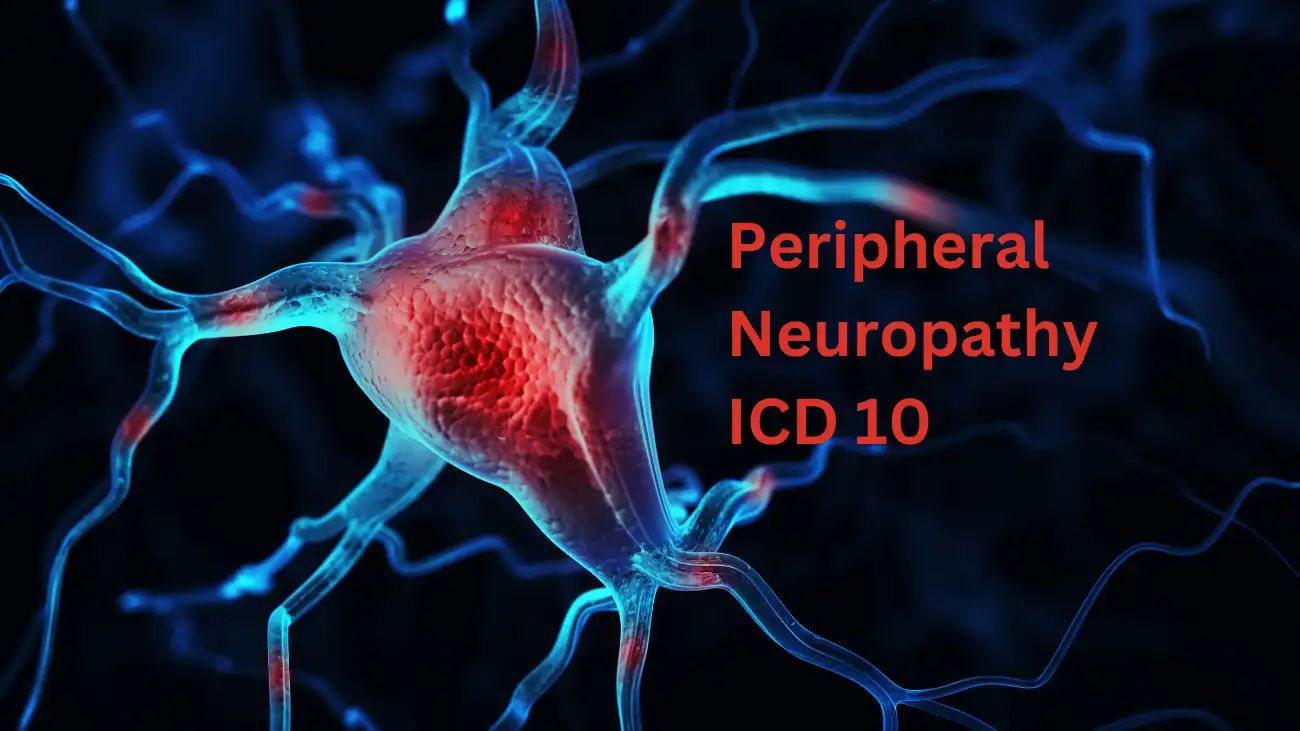ICD-10 Codes for Neuropathy is as intricate as the network of the nerves in our body and understanding it is very important to bill the right codes leading to optimized revenue for your operations and quick reimbursements with the least turnaround time. Before we dig into the Neuropathy Peripheral ICD 10 codes and guidelines let’s have a quick understanding of what Peripheral Neuropathy is.
Table of Content:
- All about Peripheral Neuropathy: Causes, Symptoms, and Diagnosis
- Understanding Neuropathy Peripheral ICD 10 Codes
- Common ICD 10 codes for neuropathy peripheral
- Common ICD-10 Codes for Peripheral Polyneuropathy
- Coding for Diabetic Neuropathy
- ICD 10 Neuropathy Pain codes
- ICD 10 Idiopathic Peripheral Neuropathy
- Other conditions associated with neuropathic pain
All about Peripheral Neuropathy: Causes, Symptoms, and Diagnosis :
Peripheral neuropathy refers to a condition characterized by damage or dysfunction of the peripheral nerves, which are responsible for transmitting signals between the central nervous system (brain and spinal cord) and the rest of the body. It often results in pain, numbness, weakness, and other sensory disturbances in the affected areas.
Symptoms of Peripheral Neuropathy: The symptoms of peripheral neuropathy can vary depending on the type of nerves involved and the extent of the damage.
Common symptoms include:
- Tingling and numbness: Individuals with peripheral neuropathy may experience a tingling sensation or numbness, often starting in the hands or feet and gradually spreading to other parts of the body.
- Sensory changes: There may be a loss of sensation or abnormal sensations such as a burning or freezing feeling in the affected areas leading to difficulties in coordination and balance.
- Muscle weakness: Weakness in the muscles controlled by the affected nerves may occur, making simple tasks such as picking up objects or buttoning clothes challenging.
- Pain: Peripheral neuropathy can cause sharp, stabbing, or throbbing pain, which may be constant or intermittent. The pain can range from mild discomfort to severe and debilitating.
Potential Causes of Peripheral Neuropathy: Peripheral neuropathy can have numerous causes, including:
- Diabetes: Diabetic neuropathy is one of the most common forms of peripheral neuropathy. Prolonged high blood sugar levels can damage the nerves over time.
- Autoimmune diseases: Conditions such as rheumatoid arthritis, lupus, and Guillain-Barré syndrome can trigger an immune response that attacks the peripheral nerves.
- Infections: Certain infections like Lyme disease, shingles (herpes zoster), HIV/AIDS, and hepatitis C can cause peripheral neuropathy.
- Trauma or injury: Physical injuries, such as fractures, sports-related trauma, or repetitive stress injuries, can damage the peripheral nerves.
- Medications and toxins: Certain medications, such as chemotherapy drugs, and exposure to toxins like heavy metals or industrial chemicals can lead to nerve damage.
- Genetic factors: In some cases, peripheral neuropathy may be inherited, resulting from specific genetic mutations passed down through families.
You should be acquainted with neuropathy peripheral ICD 10 codes if you work as a medical coder or healthcare practitioner. Let’s see how to easily navigate the coding process by breaking down the codes and giving examples in this guide.

Understanding Neuropathy Peripheral ICD 10 Codes:
Neuropathy peripheral ICD 10 codes are used to classify and track cases of peripheral neuropathy, a condition that affects the nerves outside of the brain and spinal cord According to the type of neuropathy, the affected body part, and the underlying reason, the codes are divided into different categories. For the purpose of effectively documenting and billing for services associated with peripheral neuropathy, it’s crucial for medical coders and other healthcare providers to comprehend these codes.
Understanding the many codes available and when to use them is crucial when coding for hereditary neuropathy. Hereditary motor and sensory neuropathy, hereditary sensory neuropathy, and hereditary motor neuropathy are all identified by the ICD-10 codes G60.0, G60.1, and G60.2, respectively. In order to ensure proper billing and treatment, it’s critical to precisely describe the kind of hereditary neuropathy that is present. This guide will provide you with all the information you need to know about neuropathy peripheral ICD 10 diagnosis.
Common ICD 10 codes for neuropathy peripheral:
- G90 Disorders of autonomic nervous system
- 0Idiopathic peripheral autonomic neuropathy
- 1 Familial dysautonomia [Riley-Day]
- 2 Horner syndrome
- 4 Autonomic dysreflexia
- 5 Complex regional pain syndrome type I
- 6Complex regional pain syndrome type II
- 7 Complex regional pain syndrome, other and unspecified type
- 8 Other disorders of autonomic nervous system
- 9 Disorder of autonomic nervous system, unspecified
- 512 – Complex regional pain syndrome I of left upper limb
- G90.513 – Complex regional pain syndrome I of upper limb, bilateral
- G90.519 – Complex regional pain syndrome I of unspecified upper limb
- G90.52 – Complex regional pain syndrome I of lower limb
- G90.521 – Complex regional pain syndrome I of right lower limb
- G90.522 – Complex regional pain syndrome I of left lower limb
- G90.523 – Complex regional pain syndrome I of left lower limb bilateral
- G90.529 – Complex regional pain syndrome I of unspecified lower limb
- G90.59 – Complex regional pain syndrome I of other specified site
- G91 – Hydrocephalus
- G91.0 – Communicating hydrocephalus
- G91.1 – Obstructive hydrocephalus
- G91.2 – (Idiopathic) normal pressure hydrocephalus
- G91.3 – Post-traumatic hydrocephalus, unspecified
- G91.4 – Hydrocephalus in diseases classified elsewhere
- G91.8 – Other hydrocephalus
- G91.9 – Hydrocephalus, unspecified
- G92 – Toxic encephalopathy
- G93 – Other disorders of brain
Common ICD-10 Codes for Peripheral Polyneuropathy:
- 0 Guillain-Barre syndrome
- 9 Inflammatory polyneuropathy, unspecified
- 0 Drug-induced polyneuropathy (use additional code for adverse effect, to identify
- drug)
- 1 Alcoholic polyneuropathy
- 2 Polyneuropathy, due to other toxic agents (must identify toxic agent in documentation – example polyneuropathy due to ethanol)
- 81 Critical illness polyneuropathy
- 82 Radiation-induced polyneuropathy
- 89 Other specified polyneuropathies
- 9 Polyneuropathy, unspecified / Neuropathy NOS
- G63 Polyneuropathy in diseases classified elsewhere (code first underlying disease like metabolic disease or neoplasm) (this code excludes polyneuropathy in diabetes)

Coding for Diabetic Neuropathy:
People with diabetes frequently experience diabetic neuropathy, a kind of peripheral neuropathy. The ICD 10 codes for diabetic neuropathy are E08.42 for unspecified diabetic neuropathy, E08.43 for autonomic neuropathy caused by diabetes, E08.44 for amyotrophy caused by diabetes, and E08.49 for other diabetic neuropathy. To guarantee proper documentation and billing for associated healthcare services, it’s crucial to code diabetic neuropathy correctly.
Common ICD-10 Diabetic neurological complications codes:
In ICD-10, coding diabetic neuropathy requires only one code, rather than separate diabetes and neuropathy codes:
- E11.40 – Type 2 diabetes mellitus with diabetic neuropathy, unspecified
- E11.41 – Type 2 diabetes mellitus with diabetic mononeuropathy
- E11.42 – Type 2 diabetes mellitus with diabetic polyneuropathy
- E11.43 – Type 2 diabetes mellitus with diabetic autonomic (poly)neuropathy
- E11.49 – Type 2 diabetes mellitus with other diabetic neurological complication
- E13.4 – Other specified diabetes mellitus with neurological complications
- E13.40 – Other specified diabetes mellitus with diabetic neuropathy, unspecified
- E13.41 – Other specified diabetes mellitus with diabetic mononeuropathy
- E13.42 – Other specified diabetes mellitus with diabetic polyneuropathy
- E13.43 – Other specified diabetes mellitus with diabetic autonomic (poly)neuropathy
- E13.44 – Other specified diabetes mellitus with diabetic amyotrophy
- E13.49 – Other specified diabetes mellitus with other diabetic neurological complication
ICD 10 Neuropathy Pain codes:
Back and neck pain with neuropathic involvement:
- 1x – Other spondylosis with myelopathy
- 2x – Other spondylosis with radiculopathy
- 1x, Dorsalgia with Radiculopathy
- 3x, Sciatica
- 4x, Lumbago with sciatica
- 81, Occipital neuralgia
ICD 10 Idiopathic Peripheral Neuropathy:
Peripheral neuropathy comes in the form of idiopathic neuropathy, which has no recognized cause. ICD-10-CM codes G60.0 for hereditary motor and sensory neuropathy, G60.1 for hereditary sensory neuropathy, and G60.2 for hereditary motor neuropathy are all used to describe idiopathic neuropathy. Hereditary motor and sensory neuropathy, hereditary sensory neuropathy, and hereditary motor neuropathy are all identified by the ICD-10 codes G60.0, G60.1, and G60.2, respectively.
- x, Hereditary and idiopathic neuropathy
- 9 Hereditary and idiopathic neuropathy, unspecified
- 09, Other idiopathic peripheral autonomic neuropathy
Other conditions associated with neuropathic pain:
- 43, Late congenital syphilitic polyneuropathy
- 15, Late syphilitic neuropathy
- 01, Gammaherpesviral mononucleosis with polyneuropathy
- 11, Cytomegaloviral mononucleosis with polyneuropathy
- 81, Other infectious mononucleosis with polyneuropathy
- 91, Infectious mononucleosis, unspecified with polyneuropathy
- 84 , Mumps polyneuropathy
- x, Nerve root and plexus disorders
- x, Nerve root and plexus compressions in diseases classified elsewhere
- 522, Adren myeloneuropathy
- 0, Paraneoplastic neuromyopathy and neuropathy
- 1, Sequelae of other inflammatory polyneuropathy
- 2, Sequelae of toxic polyneuropathy
- 2, Nutritional optic neuropathy
- 3, Toxic optic neuropathy
- 01x, Ischemic optic neuropathy
- 83, Systemic sclerosis with polyneuropathy
- 9, Demyelinating disease of central nervous system, unspecified
- 0, Autonomic neuropathy in diseases classified elsewhere.
- x, Inflammatory polyneuropathy
- 5x, Rheumatoid arthritis with polyneuropathy
QWay Healthcare brings to you expert-level professionals to simplify the medical coding and billing process for over 40+ specialties. You can schedule a free* demo call with us to optimize revenue cycle operations of your organizations and streamline the process with an insight driven approach. Write to Our Helpdesk.



